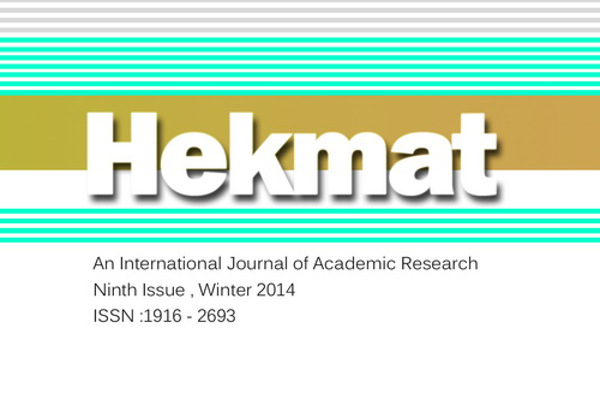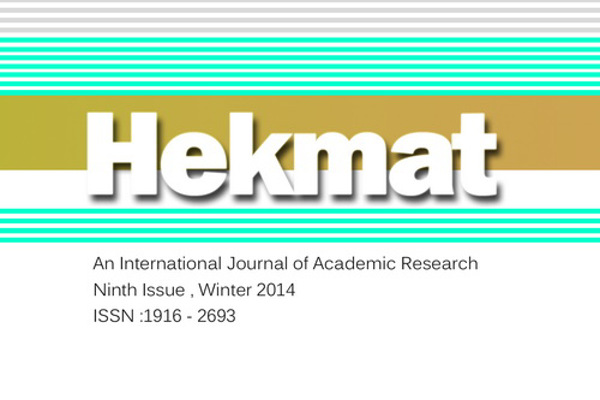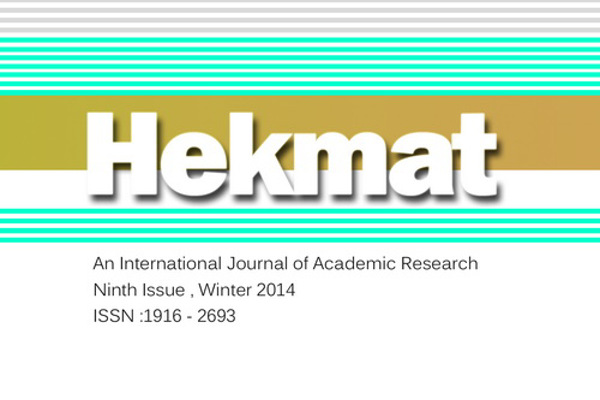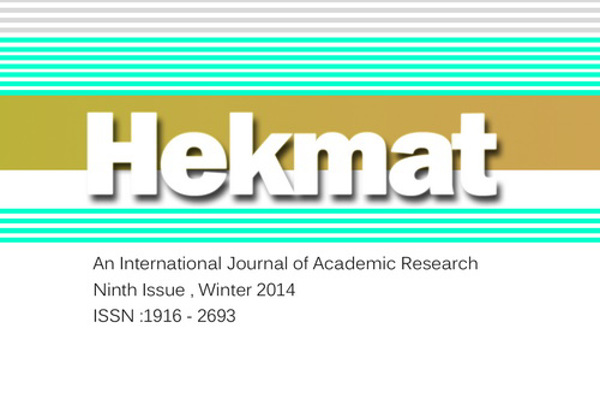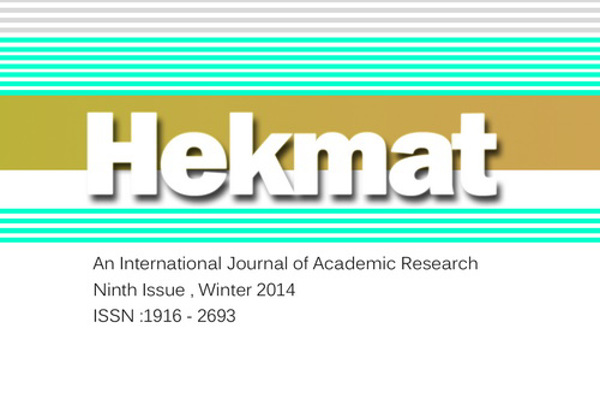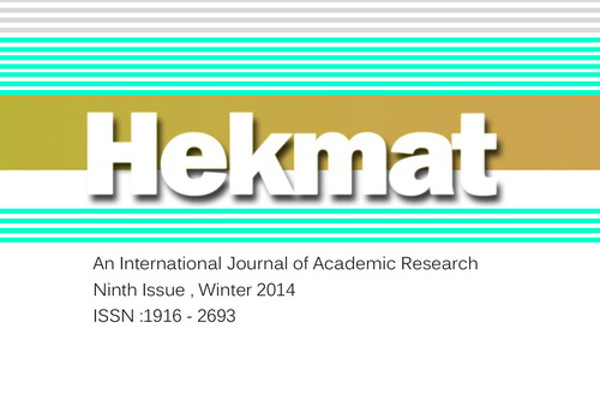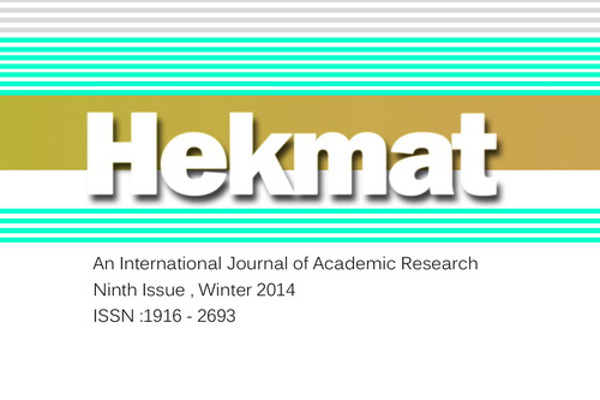Tax-Related Abnormalities in Iran and Their Solutions on the Basis of Islamic Precepts / By: Hassan Aqanazari
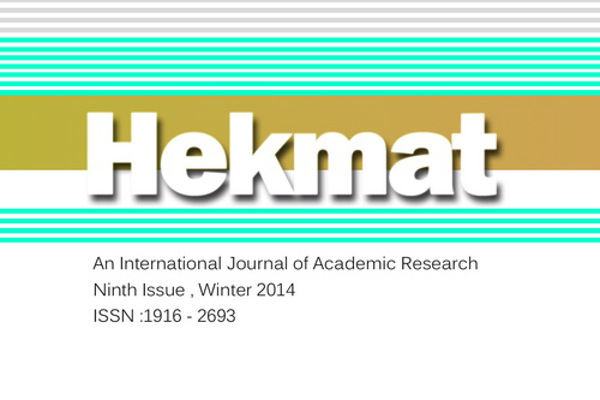
Taxpayers are indeed the pillars of taxation system in any nation. Their satisfaction with paying tax is therefore an important objective every taxing system pursues through the policies they adopt and measures they take. In Iranian society, however, a strong negative feeling towards tax in general forms an obstacle to the smooth function of the taxation system. Iranian taxpayers see, in tax collecting agents, elements deployed by the state to rub them of a part of their property. There is a long historical background that has given rise to this feeling. The general Iranian mentality concerning tax considers it a personification of tyranny they do not verbally protest against often though.
It goes without saying that tax is the most important source of revenue for modern state. In Iran, too, the state will fail to pursue plans for development and enhancement of national wealth and improvement of economic indicators unless it relies on tax as the main source of national income properly. To correct the social mentality about tax and revive the suitable culture for tax payment requires the establishment of a reciprocal trust between government and citizens. To do this, it is not sufficient to inform the public of government expenses and how they serve the purpose of enhancing public welfare. It is, of course, easy to keep people informed about these facts. The government can utilize various media in order to declare the detailed statistics of the amount of money collected through tax and spent in social and public services. This measure might be useful but is far from sufficient. The type of belief the creation of which can solve the problem mentioned above is similar to beliefs people hold about their religious obligation to pay Zakat. About Zakat, people think the financial right of the poor makes it religiously obligatory on them to give out a percentage of their income. They feel morally obliged to pay Zakat. A similar basis must be created for the shift of attitude in regards to taxation. In this paper, we try to introduce some foundations for not only legitimizing taxation but also psychologically encouraging citizens to consider tax as a financial right that the public sector enjoys as a consequence of which they are charged with the ethical obligation to pay it. Our ultimate target is to show that tax is the government’s right in the same way that Zakat is the poor’s right.
Historical background
The concept “tax culture” meaning taxpayers’ commitment to discharge their tax-related tasks is an ideal objective every taxation system in the world dreams of. This dream can come true only if the cultural atmosphere in society persuades the citizens to volunteer for tax payment (Arab Mazar, 1373; 14)[1].
The motive for tax evasion in Iran stems from multifaceted elements; social, political, economic, and even religious factors are involved. Due to the influence of these elements, people try to evade paying taxes as much as they can despite their awareness of the fact that tax is the most important source of income for the state and all development plans can be implemented only through tax collection. Some religious beliefs deeply rooted in society dating back to pre-Islamic revolution play a very important role. In the pre-Islamic-revolution Iran, the majority of citizens felt that it was wrong to pay taxes to the tyrannical monarchy since it could help it go on with its oppressive policies. Tax evasion appeared then justified morally as a religious responsibility. In this way, it became habitual to people. This line of thinking continued in the post-Islamic-revolution Iran as well.
Individuals cooperate with taxation system in society and tend to pay tax voluntarily proportionate to the level of social development and according to their view of the taxation system’s function. Therefore, taxation system must take suitable measures to correct citizens’ beliefs about it and enhance their trust and confidence. In a society like Iran, efforts must be put into making tax payment as an Islamic and national value. If society buys this belief, people's participation in the process of tax collection is guaranteed (Aqaii, 1379)[2].
The problem
Developing nations such as Iran have recently concentrated on the problem how to meet government expenses through tax collection.
The exclusive and outstanding role culture plays is not confined to the implementation of regulations pertinent to tax. All Democratic societies show a significant coordination of the level of awareness on the part of citizens of laws and regulations on the one hand, and the consequences of the implementation of these rules on the other with the level of efficiency of the state. As the result, policymakers believe in the direct connection between law and culture. It is hard to introduce one fixed criterion for cultural development for different societies since effective elements in the cultural setup defer from society to society. Nonetheless, all societies share a common characteristic; culture and law affect one another mutually. The spirit of law is interwoven with people’s attitude towards law. Customs, habits, and common tendencies are sources of law. It is of paramount importance to speculate and plan for correcting Public attitude towards law and order in society. Human beings are the sole locomotive of history. Capable, knowledgeable, and reasonable people in society can formulate a common direction the entire society adopts. In this way, scientific and technological development of society is increased and resuscitated. Under certain social and political circumstances, it is easier to formulate a common goal for society. Propaganda and education can help expedite this process.
In order to meet the expenses of the government, to protect social and economic interests of society, and to make growth and progress possible, a percentage of the income of every individual in the society is collected as tax and deposited in governmental accounts. While, in the majority of countries, tax constitutes abound 90% of the income of the state and 25 to 50% of domestic GNP, in Iran, tax constitutes maximum 30% of the state revenue and its share of GNP is around 5.5%. This indicates a grave abnormality and defect in tax culture our society has suffered from throughout the last 50 years.[3]
The problem, then, is where this tax-related cultural abnormality in Iranian society comes from, and on which Islamic theoretical basis in jurisprudence can the solution be introduced for it.
Abnormalities in tax culture within the Iranian social layers
The deep structure of the aforementioned cultural abnormality is composed of the historical memory the Iranian nation has of ages old patrimonial tyranny in the political arena. The outstanding facet of the relationship between citizens and the state in the past reflects the relation of thieves to victims of perpetual plunder. Monarchy in Iran’s history symbolizes tyranny and theft. As a result, citizens - state clash is the most enduring form of connection that stood between Iranian people and their sovereigns. The social status reflects the institution of tax in the form of people escaping from taxpaying as much as possible. One instance of the relationship between citizens and the state during Mongols' rule is so described:
"Government agents of any kind were but parasitical to villagers everywhere. Accompanied by a long queue of companions, the ambassadors and governors forced villagers to provide them with everything the troops needed when traveling from one place to another. This was in addition to the Royal tax collected from them. Throughout the empire, there were headquarters founded exclusively for the purpose of taking from people whatever the troops needed. Hunters affiliated with the court were yet another source of tyranny. In greater numbers, they relied on villagers for food and equipment. Hunters stayed in villages and would take from people as much tax as they pleased. They would take presents, cows, mules, and donkeys."[4]
This is but a glimpse of the long history of the tyrannical rule of monarchs in Iran. It has left a deep impact on Iranian mentality. This effect can hardly be removed in a short period of time. Resistance to taxpaying is only one aspect or manifestation of the hostile relation between the state and citizens. Under such circumstances, it is absurd to talk about tax culture in the sense common to democratic societies.
Social surveys have been carried out about this problem too. The statistical society one of these surveys has studied covers 4550 physicians living in the north of the capital, Tehran, whose tax files are dealt with in the North Tehran Taxation Department. Considering the fact that this particular survey can throw light on the kind of tax culture that exists here, we can use its results as argument to prove our point. First, let us take a look at the body of the research.
Methodology
Six factors are tested in the survey. They all relate to the constituents of tax culture. They are as follows:
- the level of acquaintance with tax regulations
- importance and necessity of paying tax
- trust in the office responsible for taxation
- the strength of the tendency to pay tax
- belief in taxpaying
- tax payment as a national obligation as well as contribution to provision for government expenses
The research concluded that a significant difference is seen between physicians working in the north of the capital, Tehran, as far as tax culture is concerned. It also concluded that there is a strong correlation between the process of voluntary tax payment and the level of tax culture.
The reason why the study group was selected from among physicians working in the Northern Tehran is the fact that preliminary studies had shown tax system had the most complicated problem with this group of taxpayers despite their relatively high income. This study also concluded that while the study group composed of educated relatively rich citizens displays this behavior, it is expected from other social groups of the same economic rank but lower or no educational standard to display the same behavior. Perhaps this could be extended to social groups of lower income also.
The problems involving the implementation of tax regulations cannot be overcome merely through formal reforms including regulation changes or the reorganization of agencies. What is needed in addition is the general overall shift of attitude that enables citizens to see taxation under a different light. They should be morally, psychologically, and mentally reoriented.
Now, the question is where to start from. What cultural categories must be employed and what social cultural stimulations are necessary in order to reconstruct the deep structure of tax culture in Iranian society? How could such a new structure be realized in the actual social life of people? It seems that religious beliefs as well as the elements of national culture embodied in the tradition should be relied upon for this construction. Here, we will focus on one of these aspects.
Jurisprudential foundation of tax collection
The starting point in the process of the normalization of tax payment in Iranian society consists in the change of attitude and the correction of the negative feelings towards tax. This negative view has a long history. It has been received by the present generation from their ancestors. For centuries, people have believed that tax is a kind of tribute. Replacement of this negative attitude with a realistic one can contribute to the formation of tax culture. People must come to believe that they are charged with responsibilities towards the state in the same way that the state is charged with responsibilities towards them. Islamic precepts establish state-citizen relationship on the basis of reciprocal rights. The state has to give people their right fully. People should give the state its right fully too. One of the rights Islamic state enjoys is to impose official taxes in addition to Zakat and Khoms. Traditions say that Imam Ali (be peace upon Him) imposed additional tax on two types of horses:
Imam Ali imposed two dinars on every horse grazing in pastures and one dinar on every draught horse annually[5].
This illustrates that Islamic state enjoys the light over imposing new taxes in order to cover some of the expenses and taxpayers religiously ought to observe this right by paying the taxes. Hence, the financial right of the state is based on the political behavior of Imam Ali in his government.
The first step to be taken is to make people acquainted with this type of right. This can be done by education in different levels, from elementary schools to University. The attitudes of people towards taxation can gradually be adjusted accordingly. As the second step, persuasive policies must be adopted. The third step is to legalize punishments for tax evasion. In the same way that religious teachings promise rewards for those who pay their religious debt and warn of the punishment for those failing to observe such religious duties, persuasive policies and preventing measures help expedite the establishment of tax culture.
It goes without saying that persuasive and preventive measures can be taken only when there exists an efficient supervision by the state over different economic activities and transaction services as well as deposits and investments. This requires a comprehensive information system that covers all the complicated aspects of modern economy.
As a matter of fact, the cultural setup of the society facilitates the efficient function of taxation system provided that it is formed on the basis of exact information and calculation of tax domain and tax rate. Appropriate speculations here play a decisive role in formation of tax culture.
Conclusion
The main challenge tax collection faces now is abnormal beliefs in society about taxpaying. This abnormality stems from social factors of long history. According to Islamic jurisprudential principles, the right to collect tax is one of fundamental rights of Islamic state. Through highlighting this legitimate right by public education, it is possible to combat the cultural abnormality. The cultural bedrock of taxing process can be fixed only if citizens come to realize that the tax they pay is the date they have to the state.
Bibliography
- Arab Mazar, Ali Akbar, In Search of an Appropriate Taxing System, Majles & Pajuhesh Journal, volume 11, number 45, page 41.
- Pajuheshnameh Eqtesadi, spring 1582, Different Aspects of Effective Tax in Iranian Economy, Azarakhsh, Sabri & Nazi Mohammedzadeh.
- Lembton, K.S., Landlords and Peasants in Iran, translated by Manuchehr amiri,Nashr Pub. 1345.
- Mohamad ben Hassan, Wasael al Shia, , Dar ihya al Torath al Arabi, Beirut, 1391.
- Yektani, Majid, the History of Iranian Treasury, second edition, 1340.
[1]. Arab Mazar & Ali Asghar Shayaani, faculty of economy Press, first edition, Tehran, 1385.
[2]. Pajuheshnameh Eqtesadi Journal, Spring 1379, vol.1, Aqaii, Mohammed, “ quantitative improvement of tax via information”, p.108.
[3]. Arab Mazar, Ali Akbar, Tax Journal, vol.8, spring 1373.
[4]. Lembton, landlords and peasants in Iran, Nashr Pub. Foundation, 1345, p.171.
[5]. Wasael al Shia, vol.6, section 16, hadith one.


